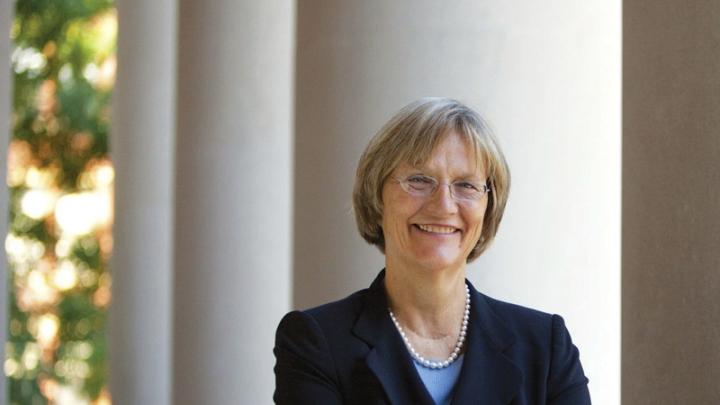Last spring, in the midst of Harvard’s 375th birthday and 20th annual ARTS FIRST celebration, my office and the Office for the Arts’ Public Art Program co-sponsored Slow Dancing, an extraordinary video installation by David Michalek. With the support of Campus Services, the façade of Widener Library was transformed into a moving work of art projected onto three large screens. Using a high speed, high definition camera, the artist created portraits of dancers in action, their five-second flashes of choreography each slowed to span ten minutes. For ten nights in late April, hundreds of spectators gathered in chairs, on the grass, under the trees of Tercentenary Theatre to watch the triptych for minutes or hours as every motion and every muscle of the 43 dancers was made visible. Movements I had watched in performances over many years now appeared completely new, as if I was seeing each gesture and each leap for the first time. The change of speed meant altered vision and transformed understanding. Even the dancers themselves were surprised to see what their movements actually involved.
Such a shift of perception and meaning is, of course, fundamental to great art. But, as I watched busy passersby making their way through the heart of our campus slow to a stop, I found myself thinking about the lessons of Slow Dancing in a broader context. They became, for me, a kind of metaphor for an important dimension of what we do at Harvard, and for universities more generally, for their commitments and their purposes: we see anew when we slow down to look, to observe, and to reflect.
This is no simple task in a world that regards speed as an almost unalloyed good—faster results, faster communication, faster trades, faster travel, faster time to market, faster time to degree. Much of this drive is legitimate. Time is indeed a resource that we must not waste. But sometimes not wasting time entails making better and fuller use of it. Slow Dancing reminds us of what we lose when we fail to take time and make time. There is so much we can miss, so much we cannot see, so much we fail to understand if we don’t regard time itself as an opportunity.
I think of universities as institutions with a distinctive, perhaps unique mission in relation to the resource of time. We are charged with thinking about the long term, with reaching beyond the stranglehold of the present—both to grapple with how we are shaped by the past and to anticipate a future beyond the next quarter or the next election. Knowledge and speed are often inversely correlated. If, as has been so often remarked, journalism is “the first rough draft of history,” scholarship digs deeper, to learn more, to understand more completely and more accurately, to take time for drafts two, three, and beyond in an attempt to approach what we might call Veritas, rather than simply to meet a deadline. Realizing the promise of stem cells, the possibilities of genomics, or the potential of renewable energy will require more than a year or two of research. Eureka moments in these and other fields build on foundations, precedents, and contexts that extend far beyond the moment. Learning, too, happens over time; it is cumulative, incremental. A student in the College enters, as is inscribed over Dexter Gate, “to grow in wisdom” over a four year experience, not to accumulate as many facts as possible in the shortest period of time.
In a season of gratitude and with a New Year fast approaching, let us celebrate what Slow Dancing represents as a valued pathway to insight, as a context for reflection. Let us make time to consider the course and the meaning of our lives as members of the University community. And let us think of Harvard as a place that continually enables us to see differently and see afresh as we commit ourselves to taking the time to look.
Sincerely,
Drew Faust








